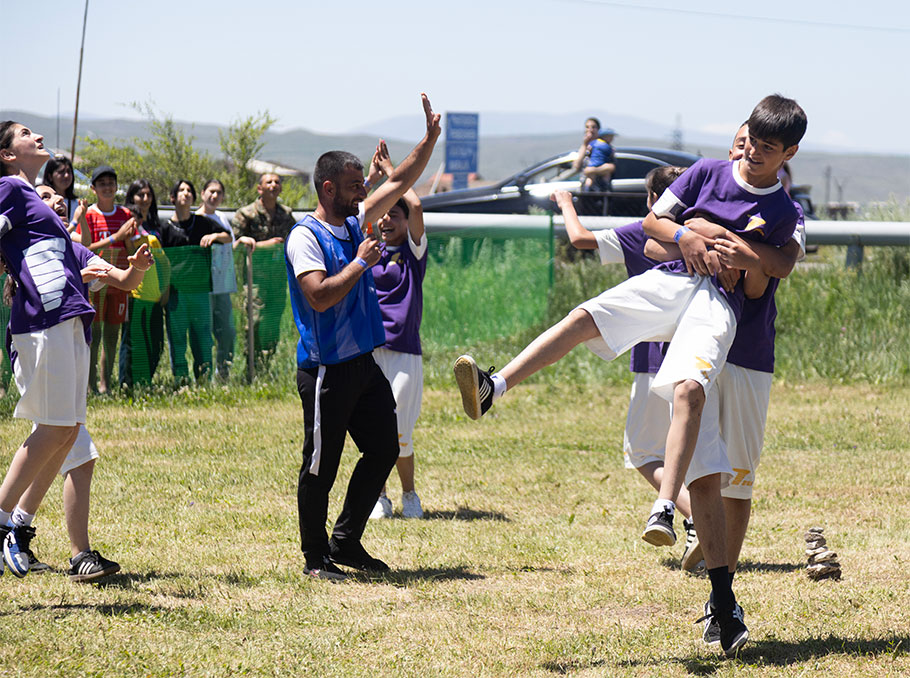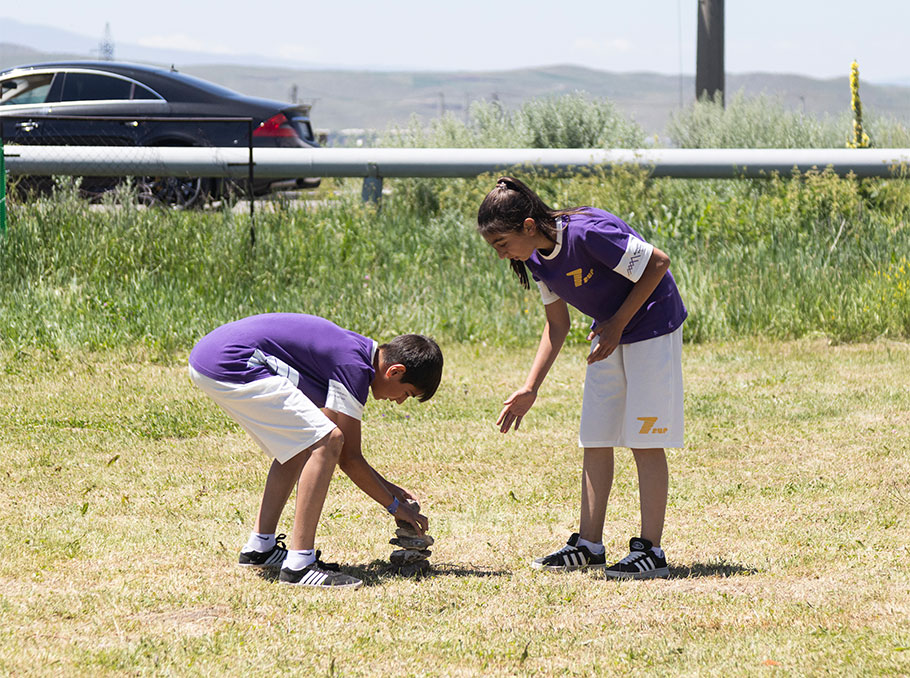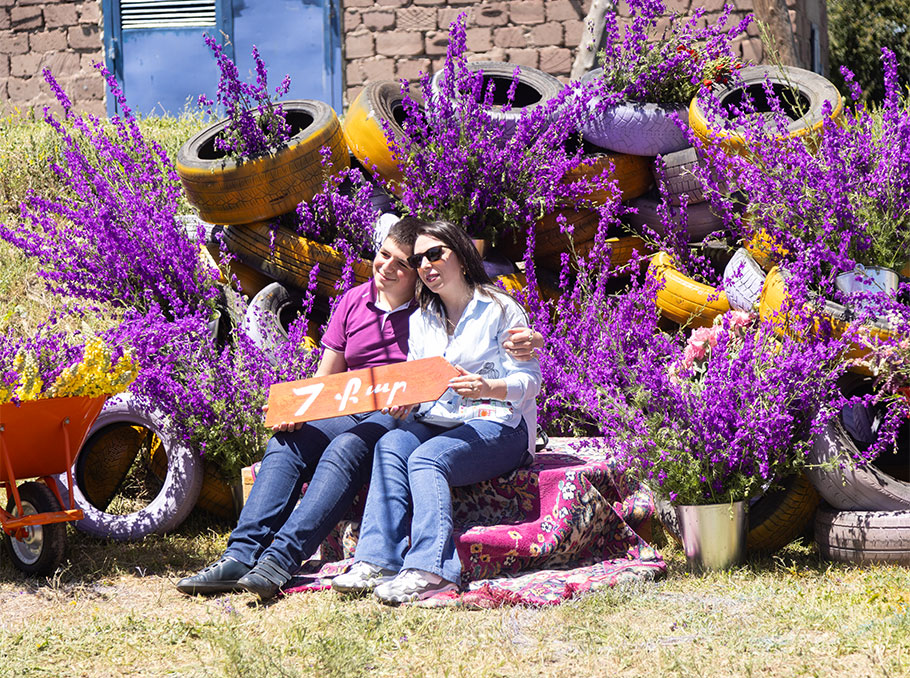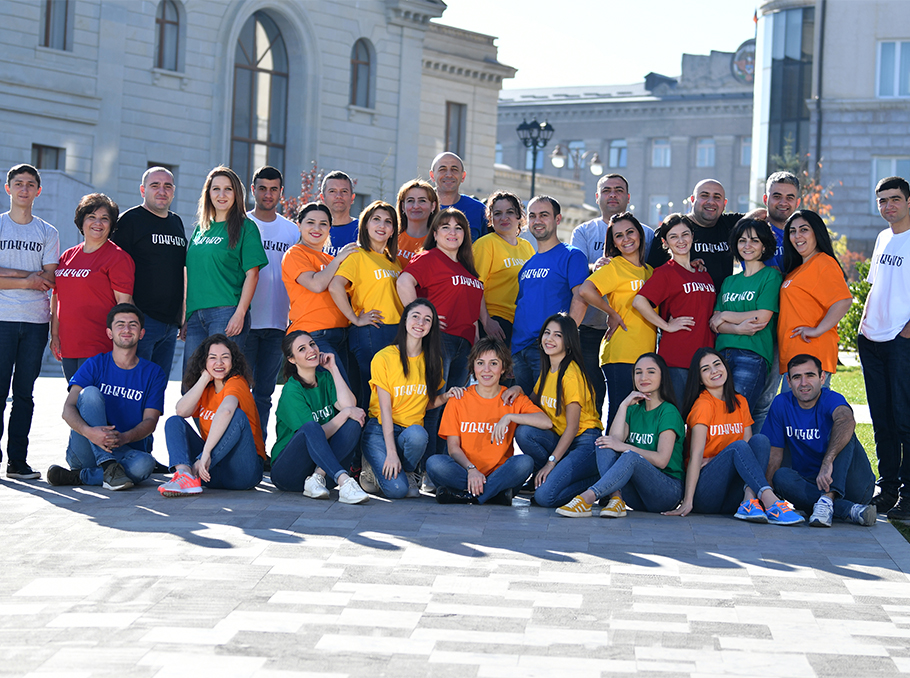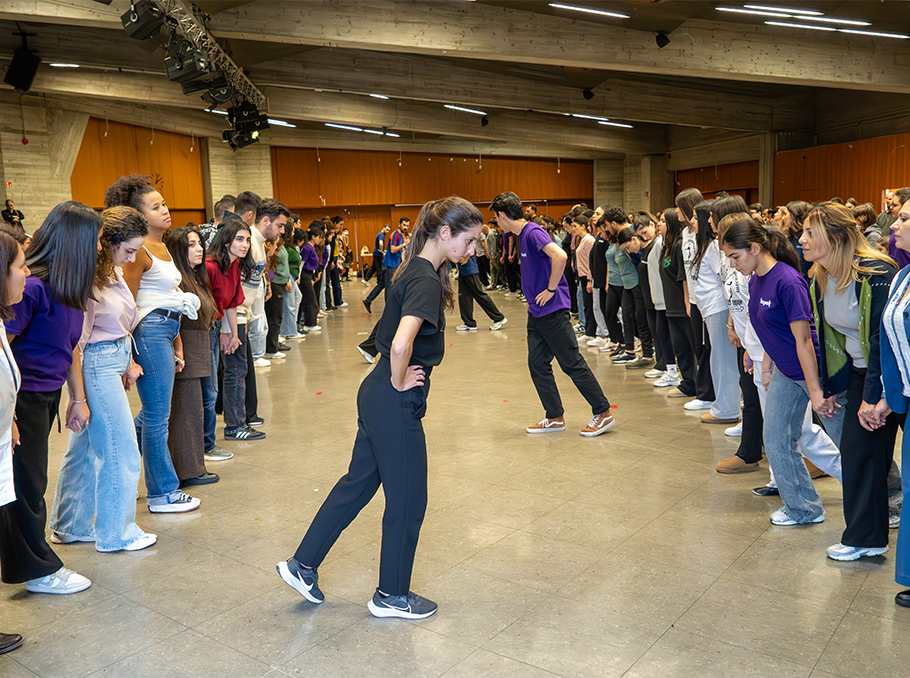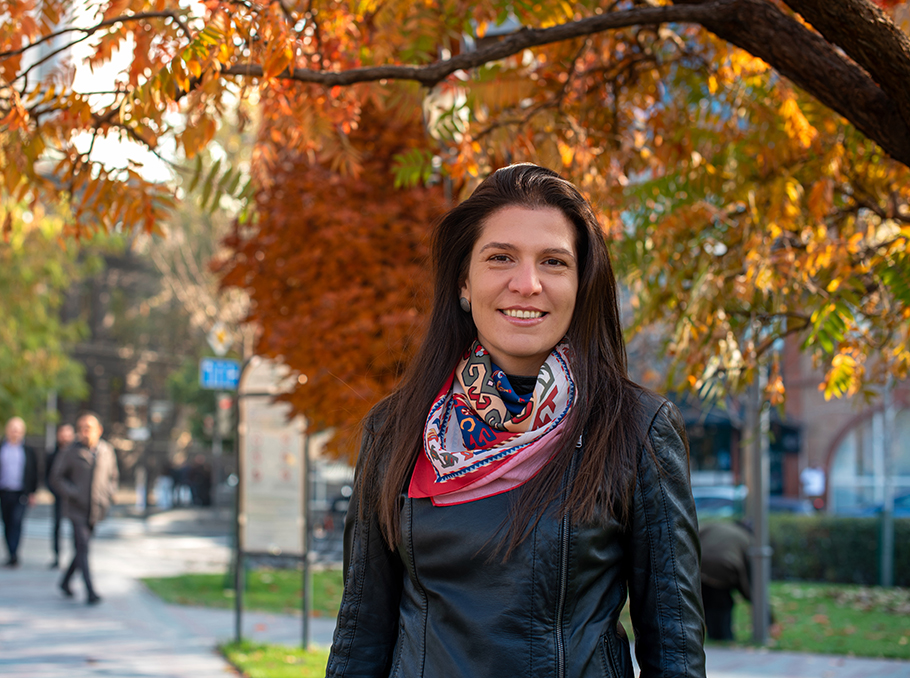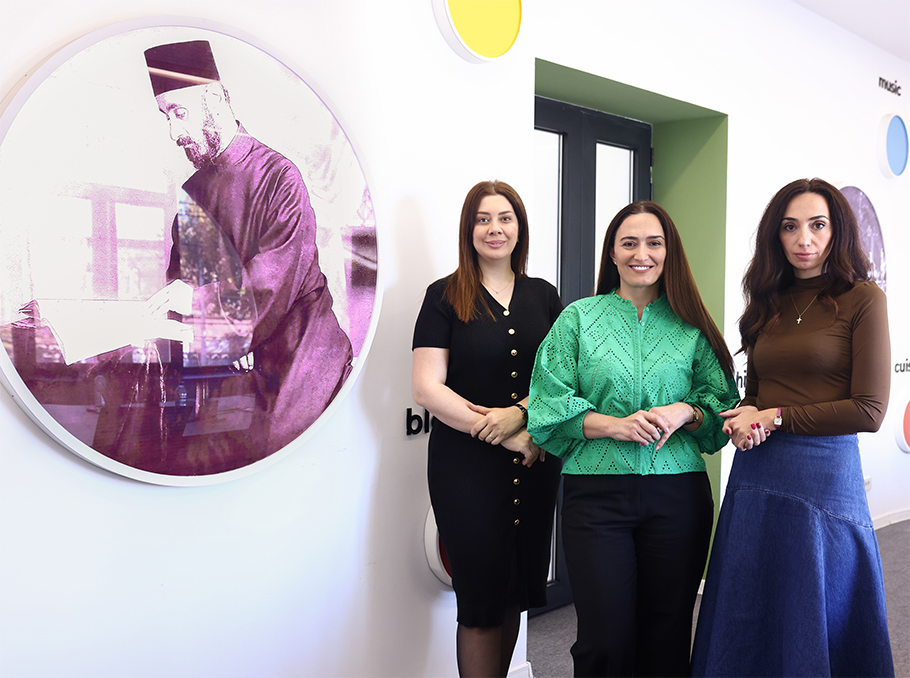In the crowded courtyard of Pemzashen community school, a group of children in purple uniforms stand out with their activity and joy. When the children calm down, a girl of the same age approaches them and says, “You played well, congratulations.” The children have just won the “7 stones” game championship, a highlight of the “7 stones” yard games festival held for the first time this year. Prior to this, children from different communities participated in the semi-finals, with the teams from Pemzashen, Nor Kyank, and Nahapetavan reaching the finals.
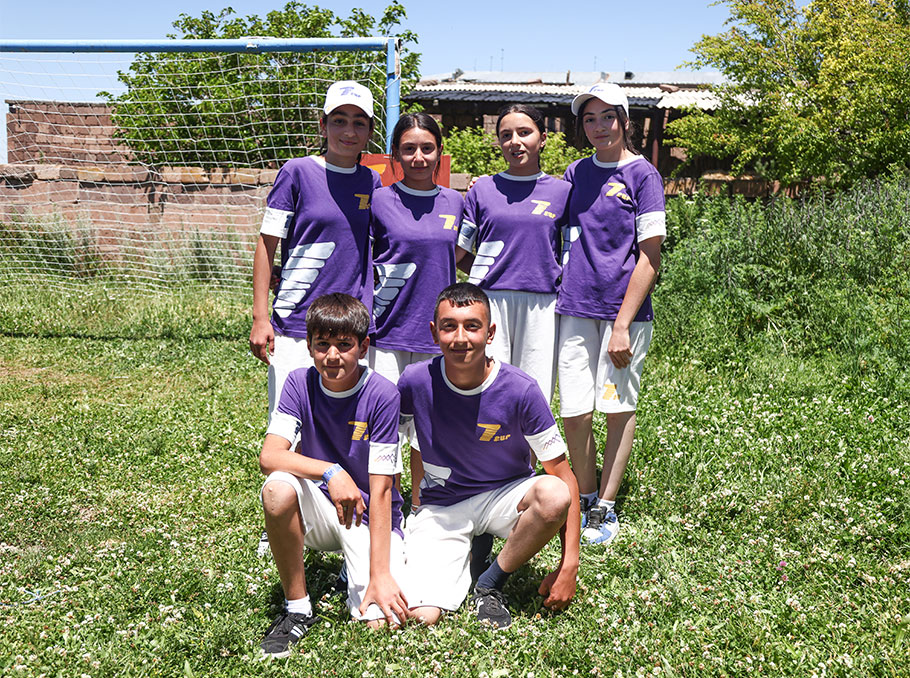
Photo: Mediamax
The “7 stones” festival, organized by Aragats Valley Local Action Group, with support of the EU LEAD4Shirak programme, was held on June 22.
The festival took place in Pemzashen, a community in the Shirak region known for its abundance of stones. This event aimed to revive forgotten childhood games and promote the significance of stones, a vital resource for the community.
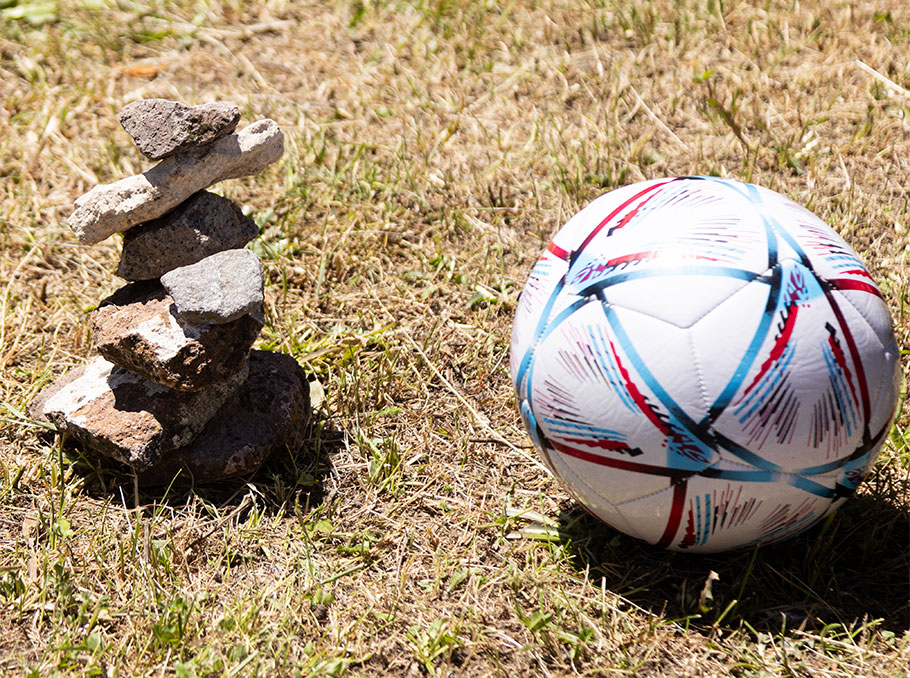
Photo: Mediamax
The children representing Pemzashen mentioned that they often play stone games in the yard. Some of their friends were upset about the championship since the team could only have six members, so they had to select the best players. The team consists of four girls and two boys. While everyone is equal in the game, when discussing their victory, the girls step forward and say, “We tried to invest all our strength and won. We are sisters and brothers, friends, and we play well together.”
A game with stones chosen by children
Nelly Vardanyan, Aragats Valley Local Action Group coordinator
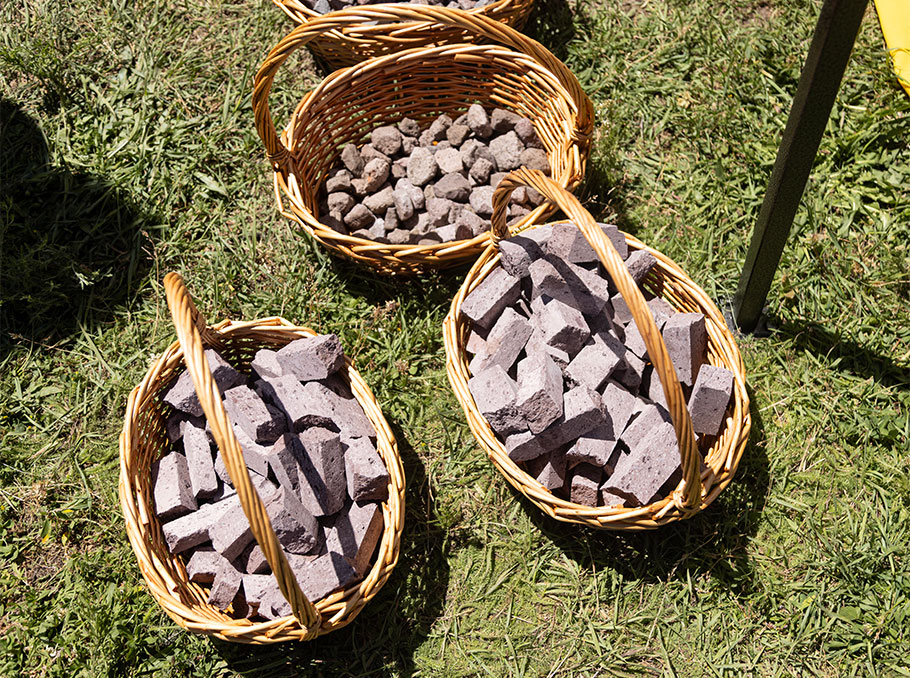
Photo: Mediamax
“7 stones” is played in different villages, each with its own unique characteristics. In our village, Nor Kyank, for example, we play with 15 stones. When we decided to hold the festival, we focused on the traditional 7 stones and began considering how to present the concept. We researched the variety of stones in Pemzashen and stopped counting after 26 because we were exhausted. Pemzashen has an abundance of pumice stones of various types and colours, which are very light. A large stone can easily be lifted with one hand. This type of stone is unique to Pemzashen.
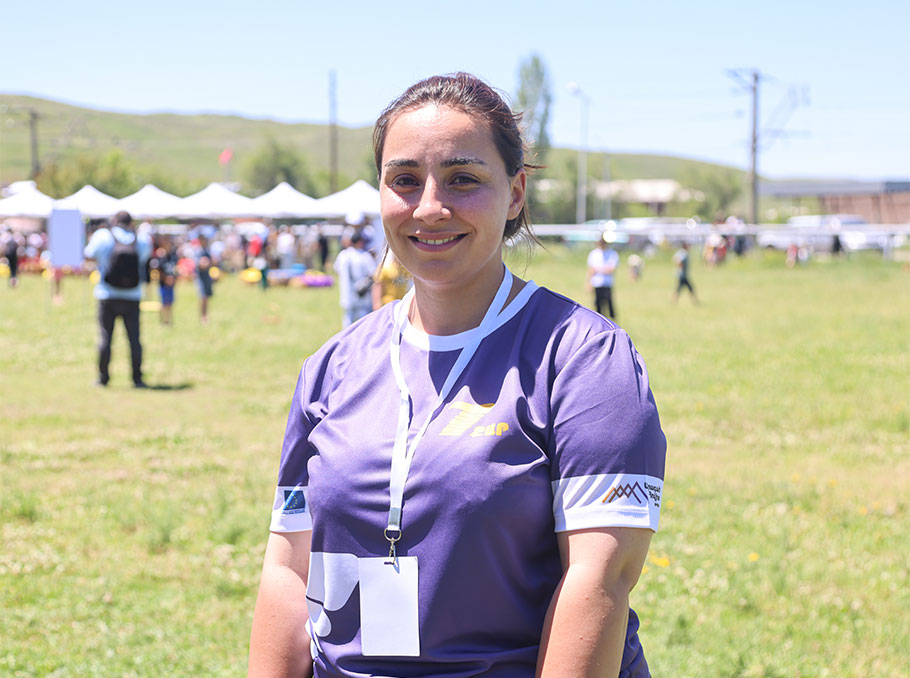 Nelly Vardanyan
Nelly VardanyanPhoto: Mediamax
We began our study with stone games typical of this area, collaborating with cultural experts, cultural centres, and music and art schools. Through this process, we discovered numerous games associated with stones in the region. Since we chose the 7 stone Pemzashen version, we first learned the rules ourselves. Our volunteers then taught the game to children from other LAG communities, giving them time to prepare for the championship.
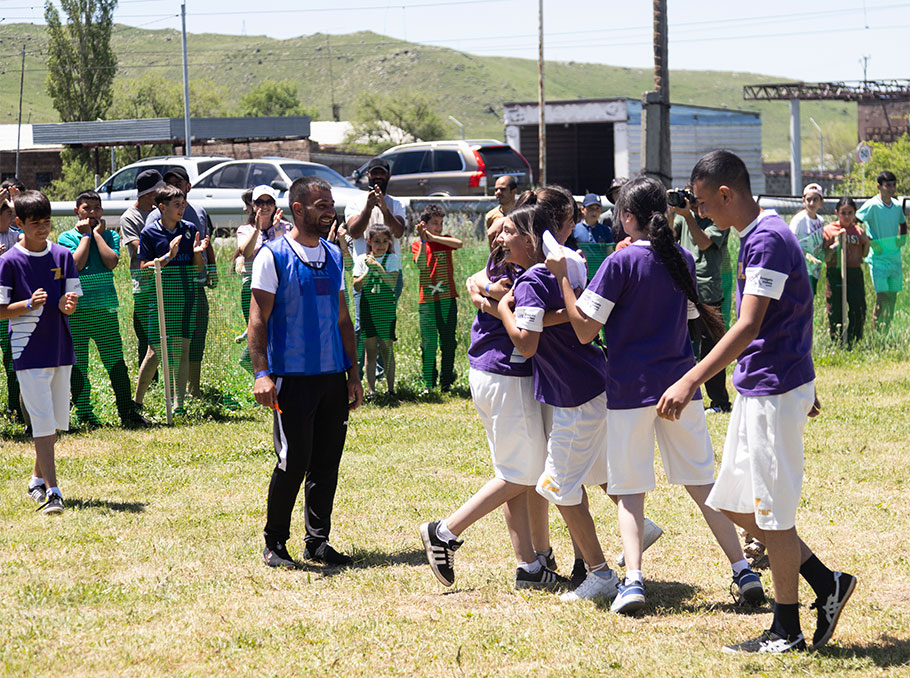
Photo: Mediamax
While teaching the game, we initially selected and polished beautiful stones for the children. However, we soon realized this made the game feel artificial. When children choose stones, they focus not on appearance but on how well the stones balance on top of each other. “7 stones” is a game of speed, and using the wrong stones can prevent successful stacking.
The right strategy key to success in “7 stones”
The “7-stone” game consists of two rounds. In the first round, a draw is conducted using the “bread-cheese-water” method or another locally accepted form. After the draw, the teams take turns rolling a ball towards a pyramid of seven stones from a distance of seven meters. The team that knocks over the pyramid becomes the defenders, while the other team acts as the attackers. The stones are arranged in a circle, with each stone seven meters apart.
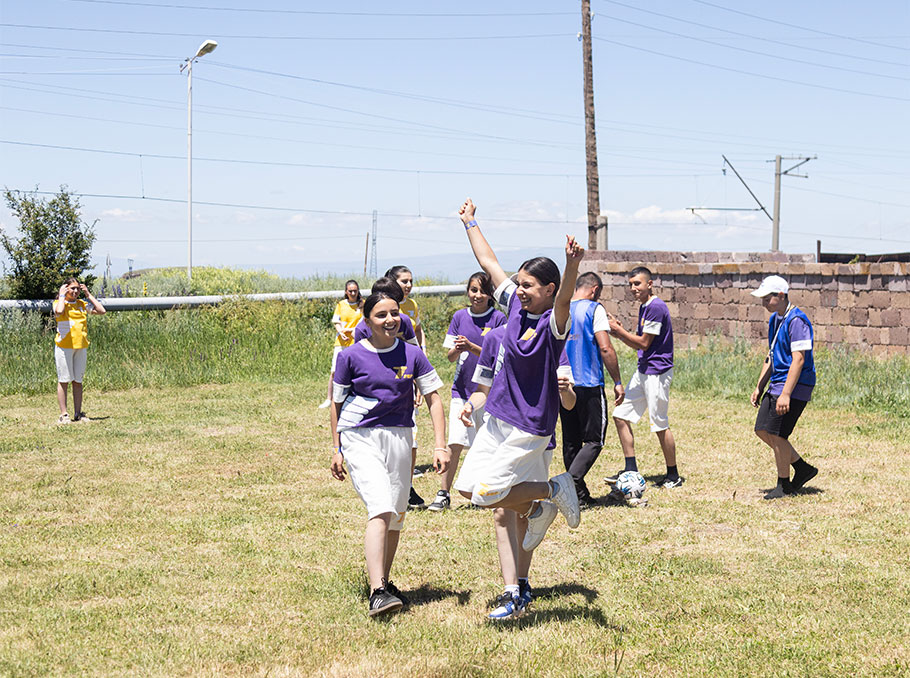
Photo: Mediamax
While the attacking team tries to knock down the stones with the ball, the defending team attempts to rebuild the pyramid. After successfully stacking the stones, they must fix the pyramid and count to seven. There is an additional rule: one member of the defending team can make a self-sacrifice by catching the ball thrown at them and throwing it away, allowing their teammates more time to stack the stones.
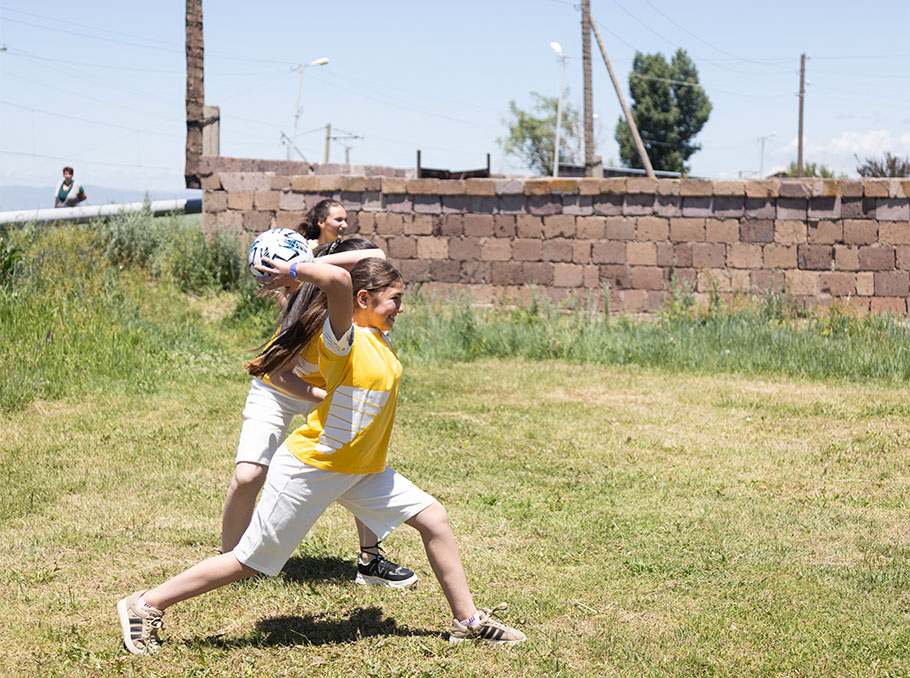
Photo: Mediamax
“7 stones” is a team game that requires strategic planning for both sides. Proper role distribution within the team can make it difficult for the opposing team to succeed.
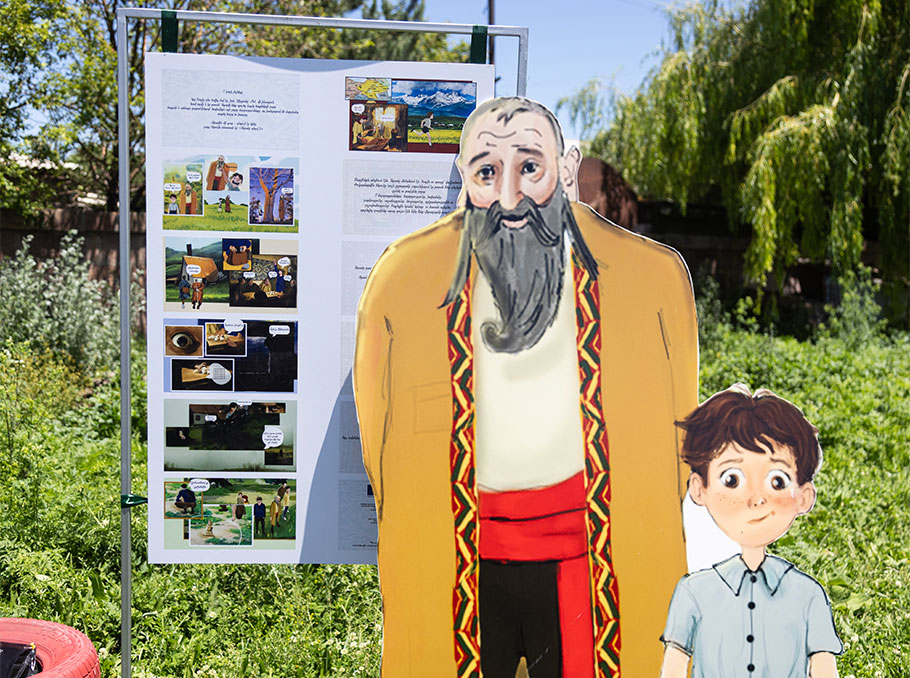
Photo: Mediamax
While exploring the meaning behind the game, we decided to create a myth featuring heroes named Aram and the Grandfather. Although it might be difficult for children to grasp, we associated the seven stones with the seven deadly sins. In preparing the comic, we aimed to depict an Armenian grandfather reminiscent of Sos Sargsyan, and Aram as one of the village children.
Everything around the stone
We prepared gifts for all the children who made it to the finals of the “7 stone” championship. The winning team received a display stand featuring all the stones known in Pemzashen and Armenia - not expensive, but valuable. The other children received motivational books as their prizes.
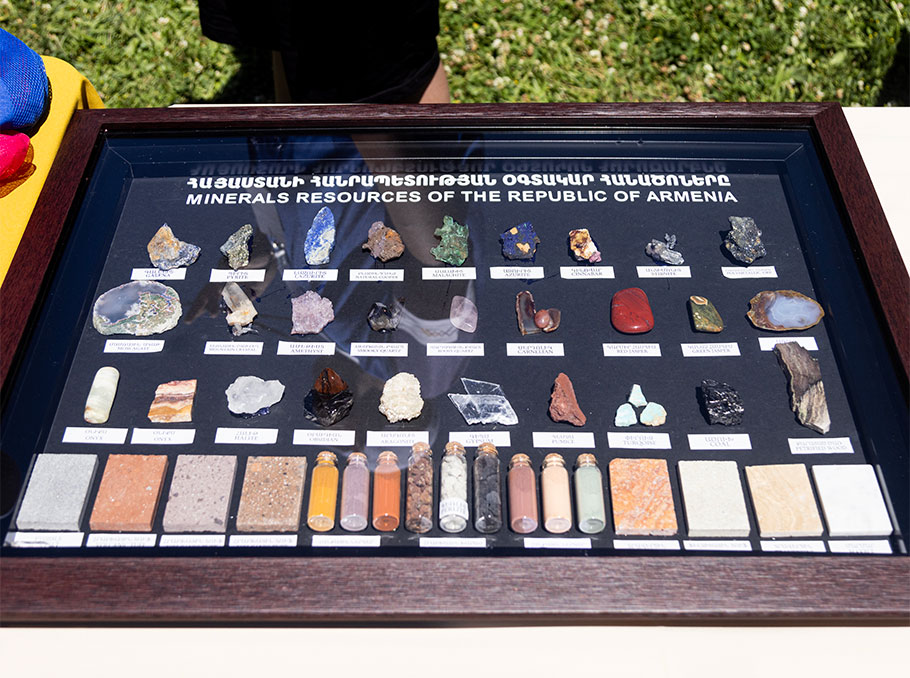
Photo: Mediamax
Children should understand that stone is an important resource. Last year, we held an event called Karamar, aimed at developing and promoting one of the area’s calling cards: the stone. During the event, we collaborated with the Museum of Geology. Specialists visited and taught the children about different types of stones, conducting master classes to demonstrate that stones can be used to create jewellery, home decorations, and other items.
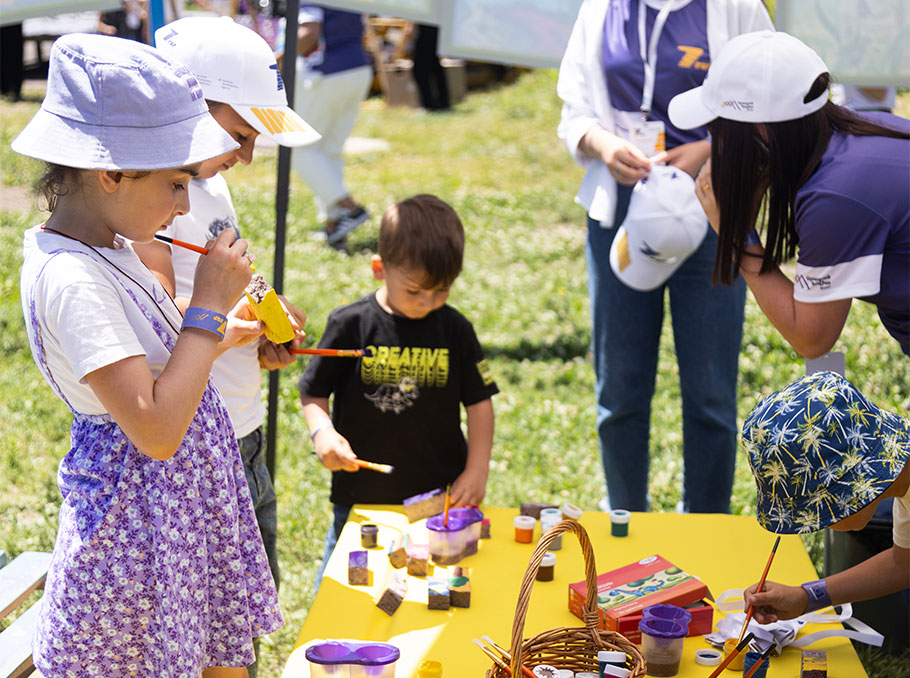
Photo: Mediamax
During the “7 stones” festival, we also attempted to have pavilions with food prepared on stone, but there were issues with the area that led us to abandon that idea. Overall, we tried to incorporate the theme of stone throughout the entire festival area. Children played with stones, drew on stones, and even the benches were made of stone.
Make “7 stone” intellectual property
The “7 stones” festival is the outcome of collaborative efforts; we secured financial resources with the support of local self-government bodies. We received prompt responses to all our inquiries, and the LEAD4Shirak team accommodated all our requests. Over the past week, the team has been tirelessly assisting us with various tasks, from technical support to human resources. Local residents also showed strong support during this period.
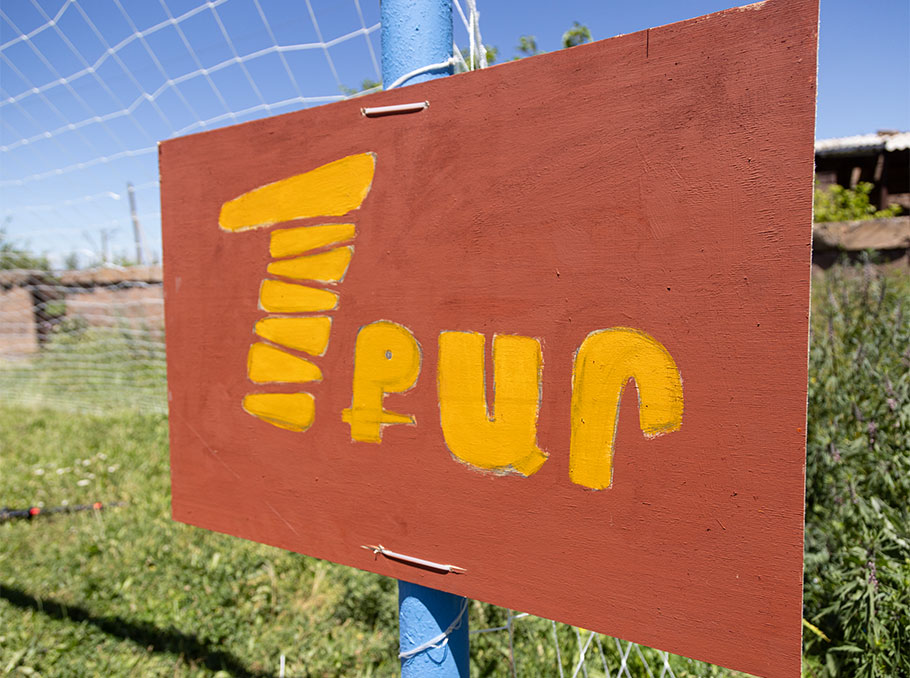
Photo: Mediamax
From these experiences, I have come to understand that LAG has fulfilled its mission. However, the local businesses do not take the activities seriously, which significantly hindered the efforts of the LAG. A business was supposed to ensure the conduction of a major part of the festival but it failed, leaving us with an open slot that locals helped us fill.
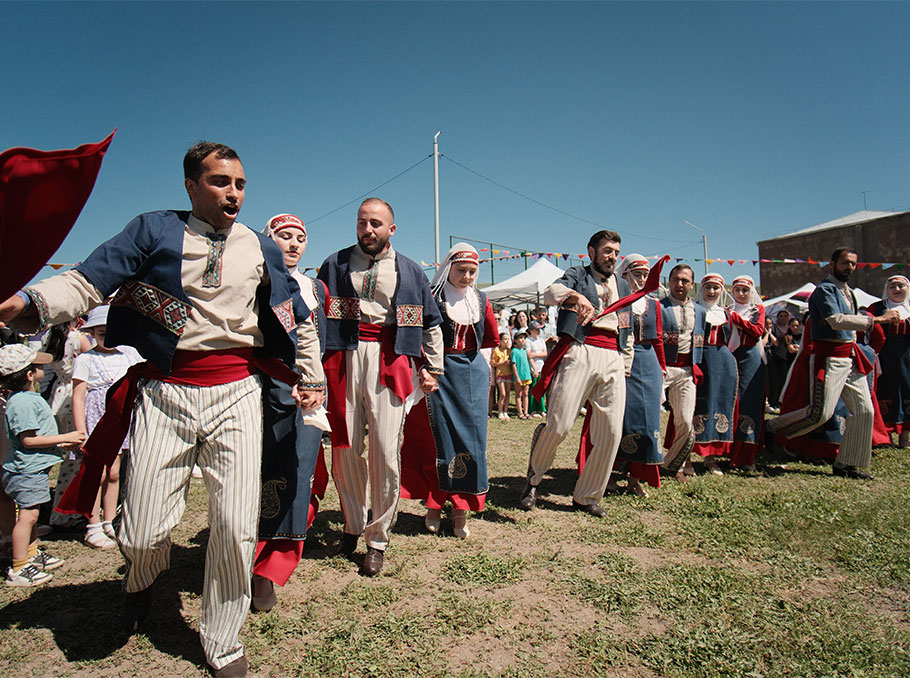
Photo: "7 stones festival"
Throughout the process, cultural expert Ruzanna Tsaturyan assisted us. At the last moment, we invited the “Hrayrk” traditional dance group to participate, and they did not refuse. Additionally, the “Katil” band joined us as special guests of the festival. When we decided to involve members of the Khabukhaz women’s club and local grandfathers in the event, we envisioned a culturally rich and beautiful day where everyone could find something of interest.
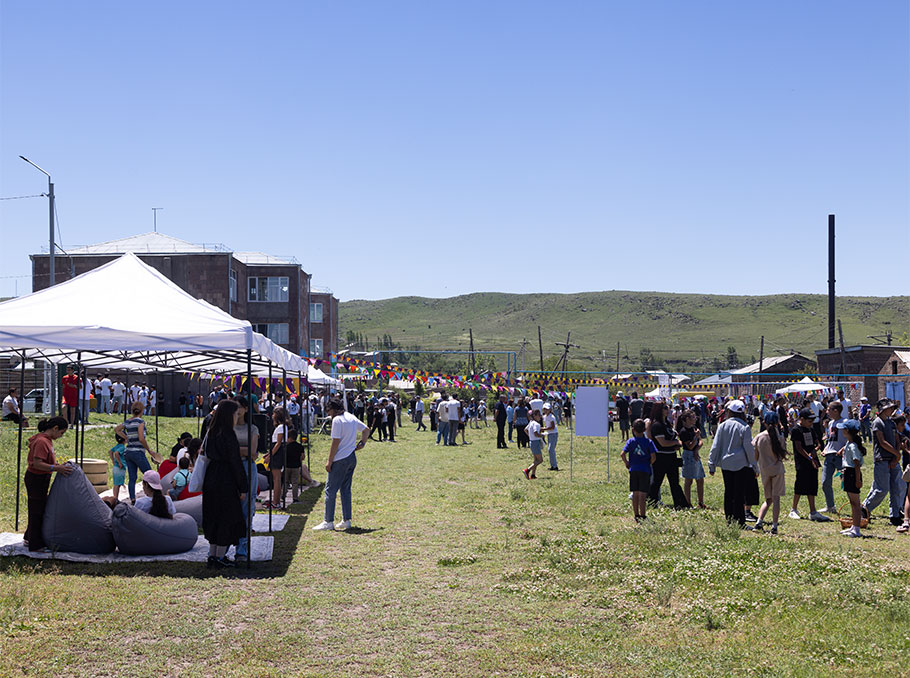
Photo: Mediamax
The festival is set to become an annual event, and we are considering registering “7 stones” as intellectual property to enhance its recognition. This would enable us to promote the game and festival across different regions and organize championships. Pemzashen will not remain the sole location for the festival, as our aim is to engage and activate all communities of the LAG.
To revive the tradition and promote inbound tourism
Husik Sargsyan, LEAD4Shirak project manager
Our team frequently emphasizes that innovation is our tradition, with a touch of surprise. At this festival, you will experience all our traditions: Khabukhaz, 7 stones, Karnetotsi (throwing of stones), and other games. The “7 stones” festival is a journey of reviving tradition and culture within the Aragats Hovit LAG territory, while also creating something new upon them. Tradition, a hint of surprise, and innovation will define our future collaborative efforts.
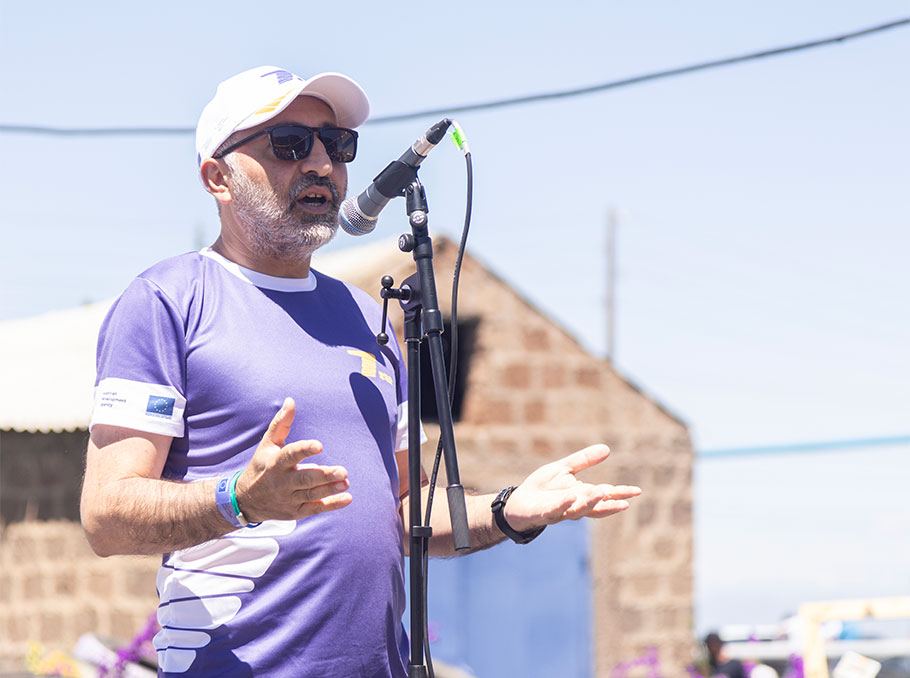 Husik Sargsyan
Husik SargsyanPhoto: Mediamax
Klaus Kapper, head of the Yerevan office of the Austrian Development Agency
It is truly rewarding to witness the “7 stones” festival become a reality. The Austrian Development Agency, in collaboration with the European Union, is committed to fostering economic development in the regions of Armenia, including Shirak. In Lori and Tavush regions, we support the implementation of the LEADER methodology. Through the LEAD4Shirak programme, the Austrian Development Agency is successfully implementing this methodology in Shirak, and we are delighted to see its positive impact and achievements.
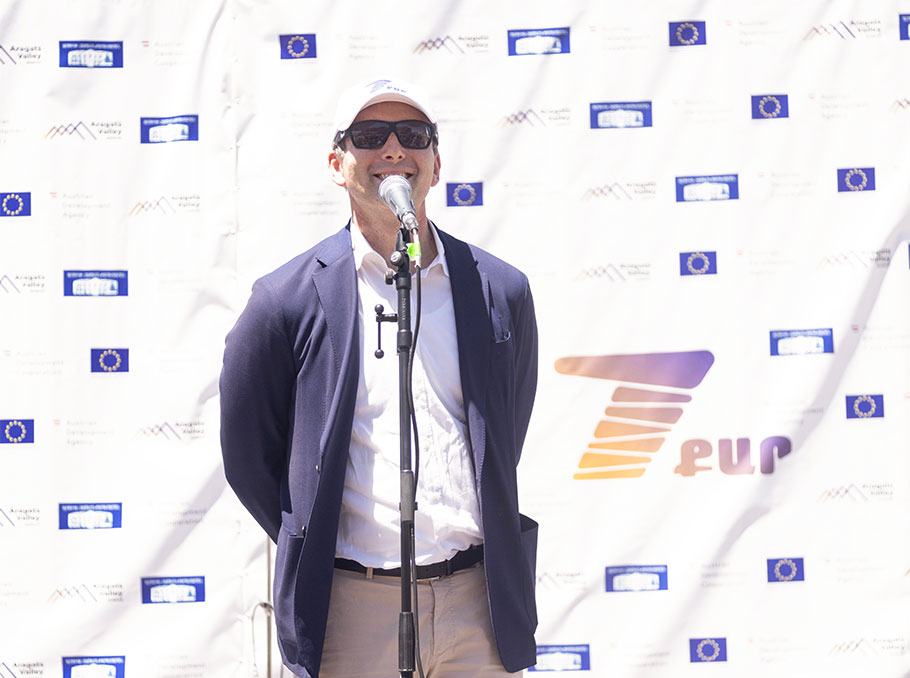 Klaus Kapper
Klaus KapperPhoto: Mediamax
This festival is the result of the activities of LEAD4Shirak and the local action group. LEAD4Shirak and LAGs strive to unite civil society and various sectors of the community, fostering cooperation for community improvement. LAGs bring together local government bodies, businesses, and civil society representatives, empowering local residents to decide on the best ways to develop their community. We firmly believe that residents understand their community’s needs better than anyone else.
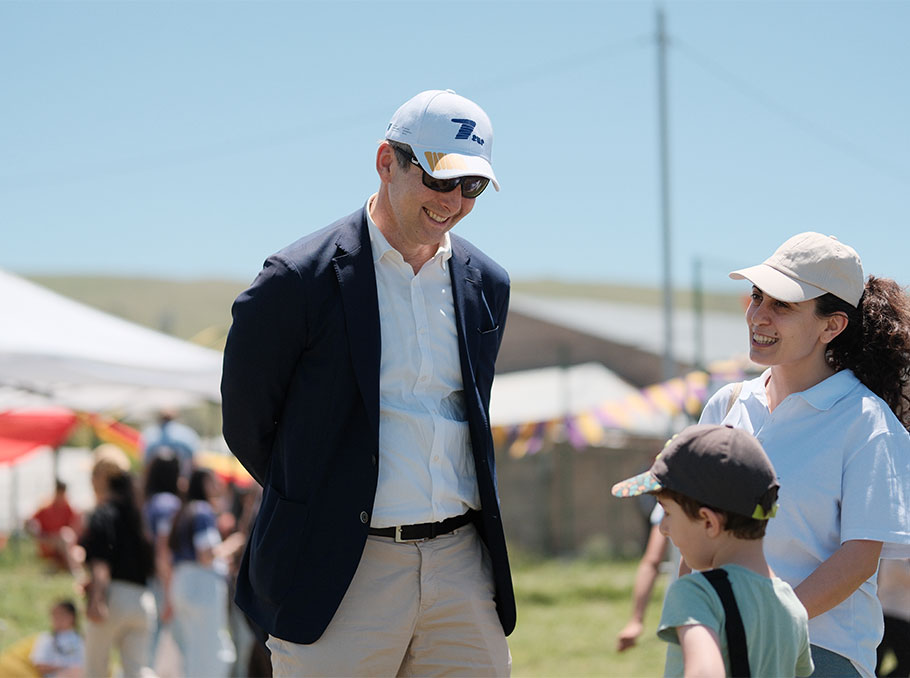 Klaus Kapper
Klaus KapperPhoto: Mediamax
We are deeply moved to witness the entire community investing its resources and time into organizing this festival. Such festivals promote inbound tourism and give new impetus to the local economy.
The article was produced with the support of European Union and Austrian Development Cooperation. The content of this article is the sole responsibility of Lead4Shirak project and does not necessarily represent the views of the European Union and Austrian Development Cooperation.
Ani Khchoyan









